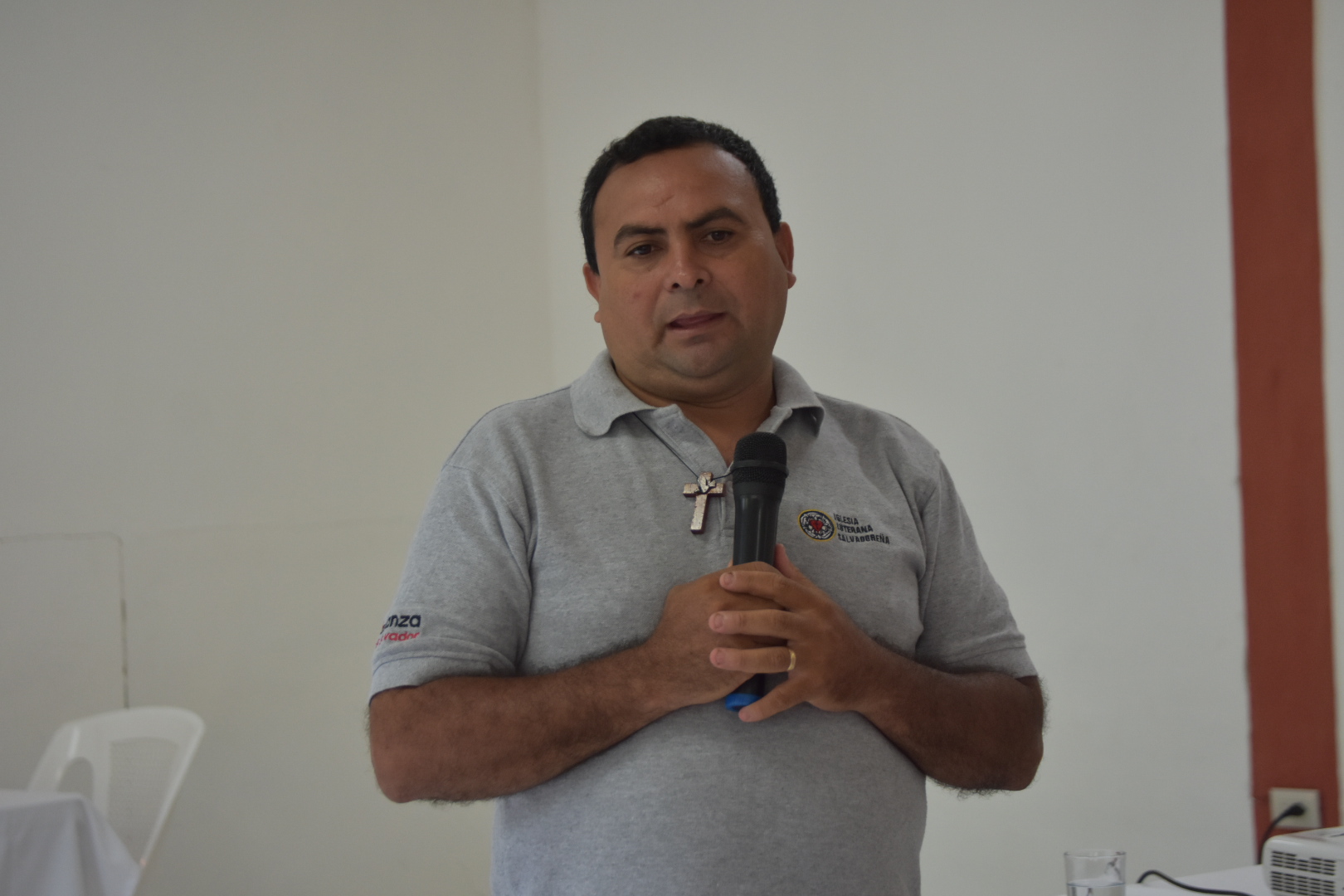On March 19-27, Presbyterians from the U.S. joined with our sibling churches in Honduras, El Salvador, Guatemala and Mexico in San Salvador to launch a new PC(USA) migration mission network. U.S. participants came from local congregations, presbyteries, the Office of General Assembly and the Presbyterian Mission Agency to hear directly from our partners about migration to the United States and its impact on their communities. Below are 2 short reflections from one of the participants, Kathy Wells, about what the formation of this network means to her. Kathy came from Carlisle Presbytery and the Honduras Mission Network. Learn more about the network here.
photos by Roy Horan and Nelson Santos
Archbishop Oscar Romero
I’m sitting here trying to think of something to write about our first full day at the Launch of the Migration Mission Network. We spent the day visiting sites connected to the life and death of Archbishop Oscar Romero. My first reaction is – “I have no words.”
I watched the movie Romero for the first time sometime in the 1990’s. Since I was coming to this event, I decided maybe it was time to refresh my memory. Thirty years is a long time. So I got the movie on inter-library loan and watched it twice more.
The transformation of this man, from someone who lived a fairly “traditional” life as a priest (if one could live a “traditional” life of any kind at that time in El Salvador), to a man whose faith called him to stand up for the poor in his country and seek justice for them, is truly inspirational. He urged government forces and guerillas alike to turn from ways of violence. He mourned the death of every priest who was killed before him, and the deaths of many others as well.
To stand in the chapel at the Romero Center left me in awe. On the outside of the chapel are the Archbishop’s words: “If they kill me, I will be resurrected in the people of El Salvador.” To see the garden where six priests from the University were killed was also very moving. It was a very fitting opening to this Migration Mission Network launch. How can we call upon our own faith to stand with those who flee their countries for the hope of a better life? What will be the best course of action for us to take? What is our faith calling us to do? May we search within ourselves this week for answers to these questions.
Our Own Journey Begins
After our eventful first day of visiting sites important in the life and remembrances of Archbishop Romero, we began serious work on how we would respond in faith to the plight of the many people leaving Central American countries for hope of a better life elsewhere, specifically in the United States. Perhaps the first step was the most significant – the celebration and formal launch of the Migration Mission Network of the Presbyterian Church (U.S.A.), the Iglesia Reformada Calvinista de El Salvador, and the other organizations represented at this gathering. Just taking this step is a statement of hope.
Some of our devotionals focused on journeys. The journey of migrants was compared to several steps on the stations of the cross. And a pastor who was born in Mexico talked about her journey to the United States, leaving behind her family, but sheltered by the arms of God as represented by a shawl made for her by her mother.
We talked about the history of migrations from the countries represented at this gathering. Although I am from the United States, I was invited along with another member of the Honduras Mission Network to join the group from Honduras. They proved to be efficient at Googling to learn more about their own history of migration! We also learned about the work many other organizations are doing to help residents of their country as they decide whether to go or whether to stay, and when some of them are deported from the U.S. back to their country of origin: Cristosal, the Migrant Agenda, and the Lutheran Synod of El Salvador.
And now, as we begin the last two days of our gathering, it is time for us to think about our own journey. How will we walk with the migrants who are our sisters and brothers? What can we do to ease their burdens? How can we help make life easier for them in their own countries so they do not feel a need to migrate? The work ahead of us now is the most difficult of all.







